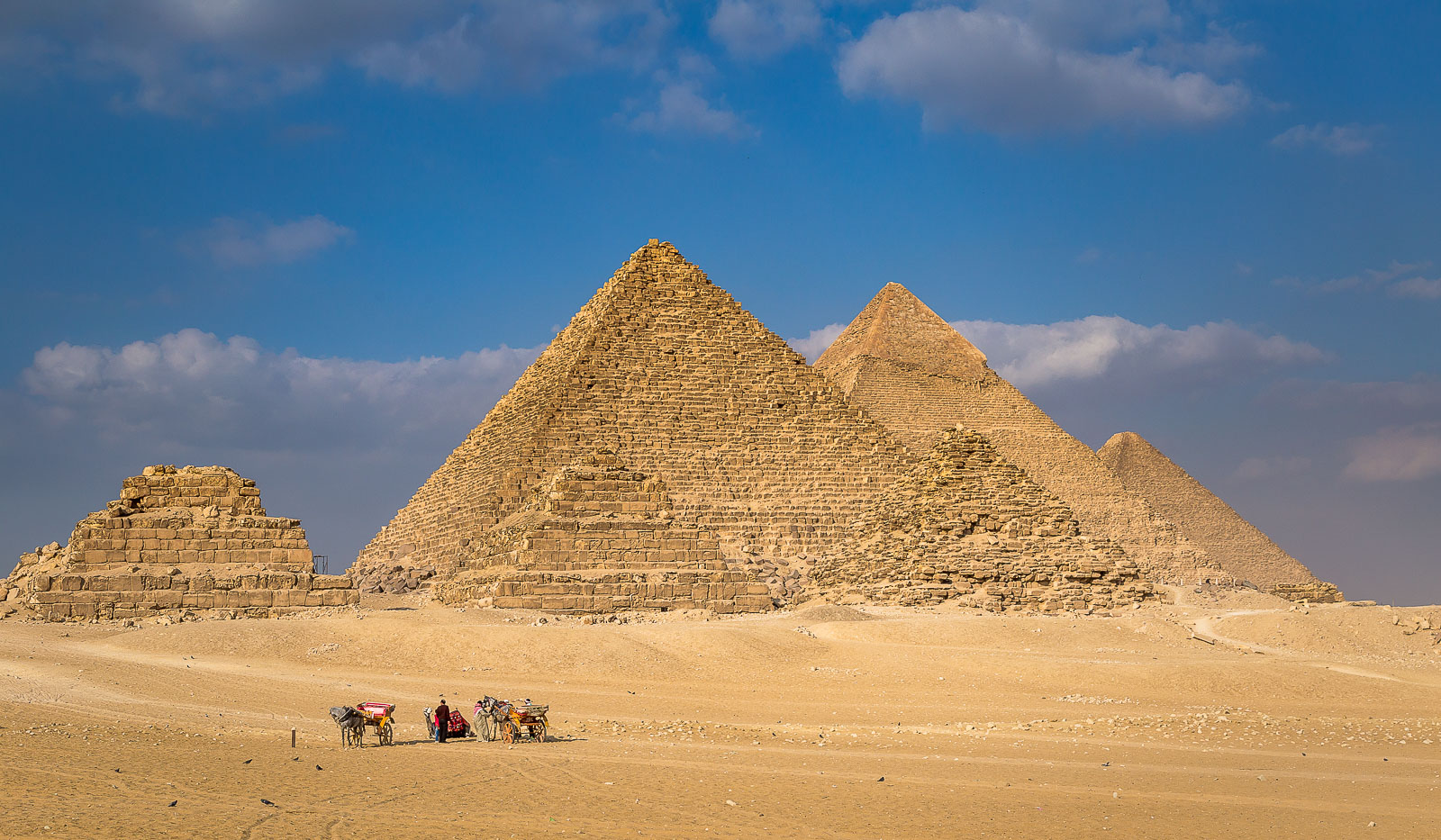Egypt needs no introduction. All the ancient history classes have thought us all about the great ancient Egyptian civilization as well as their mythical religion. We first had plans to come to Egypt in 2017, but some unexpected events led us to our South American trip instead (no regrets!), so we put our Egypt plans on hold. We are so glad we finally managed to follow through on those years-old plans and visit this historically-rich country.
Pyramids of Giza & Egyptian Museum
Where else could we have started our visit to Egypt if not at one of the most iconic landmarks in the world? The Pyramids of Giza are the only remaining original World Wonder – the true definition of built to last.
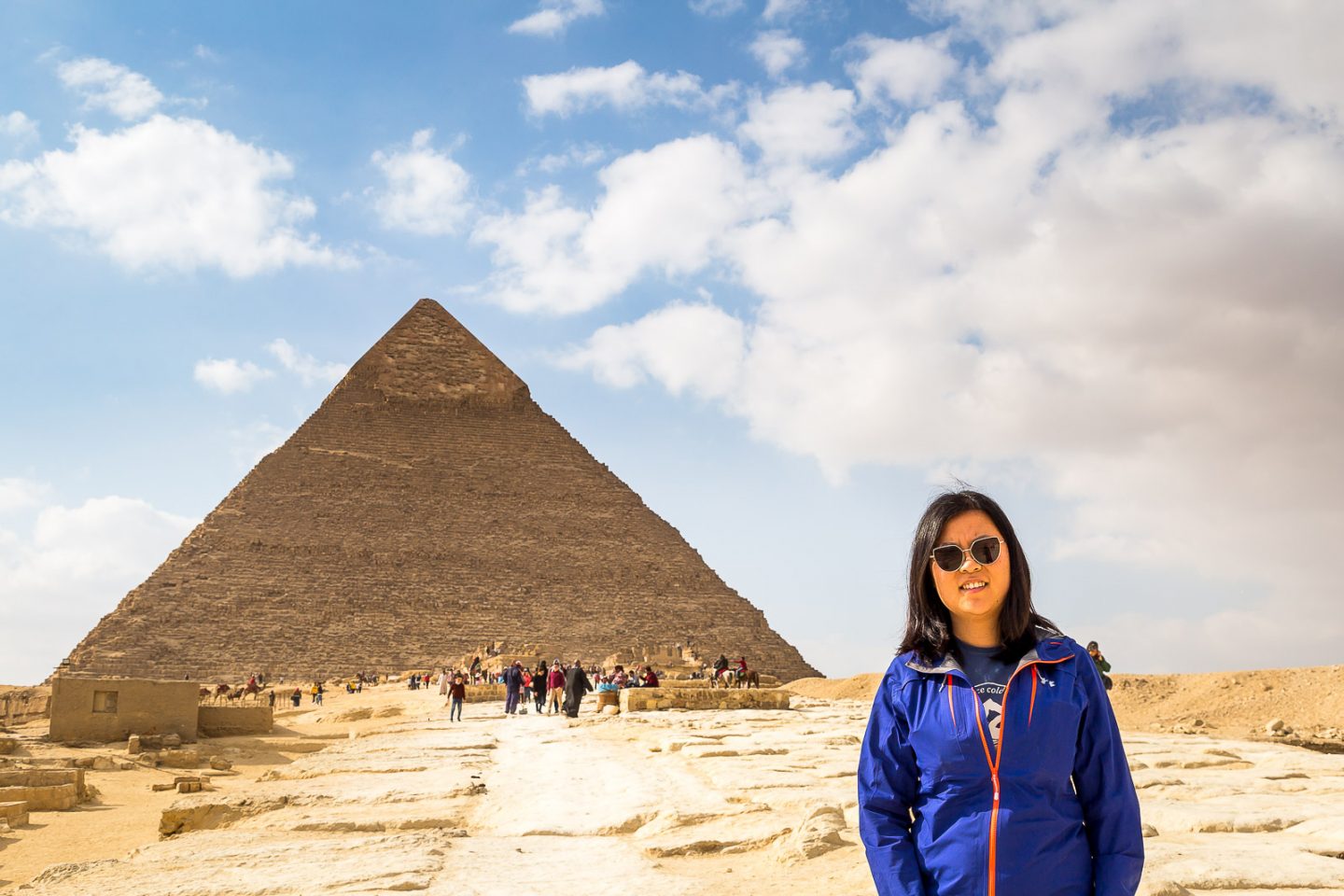
Our hotel had amazing views of the Pyramids and the Sphinx. Waking up every morning and having breakfast with this view was a treat.

The views were equally stunning inside the grounds. We sat by the Sphinx and admired the beauty and hardships of its construction. The area surrounding it was a bit chaotic with all the people roaming about.
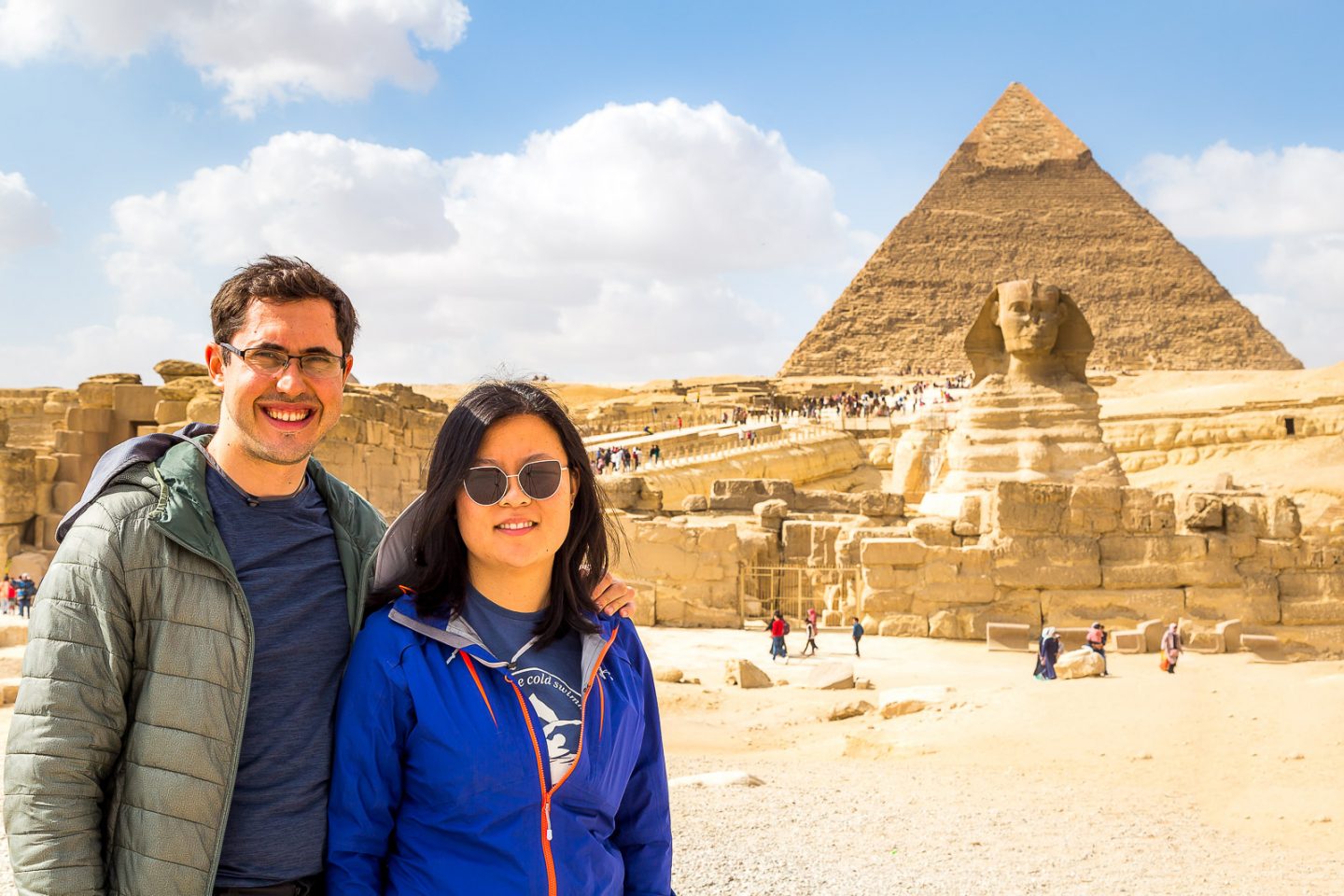
Past the Sphinx, the Pyramids were so much bigger in person than they ever looked in photos. Due to their size, we realized they were better seen from afar than up close, so we took a horse carriage to a viewpoint on the other side. To think of how many millions of people had been here before us… the surrealness of it all was not lost on us!

To see what was discovered inside the Pyramids (and other tombs elsewhere in Egypt), we visited the Egyptian Museum in Cairo. What it lacked in explanation of its content, the museum made up for in the sheer amount of artifacts available!

There were rows upon rows of wooden and stone sarcophagi, statues, dozens of well preserved human and animal mummies. It felt like all of the artifacts ever found in Egypt were here with us.

The highlight was seeing all the treasures found in King Tutankhamun’s tomb, including his death mask and sarcophagus.
Abu Simbel
Near the border with Sudan, the Abu Simbel temples were simply magnificent and must-sees! It was worth the 4am wake-up call and the 8-hour roundtrip drive, that’s how cool it was.

Built by King Ramses II and dedicated to himself (eye roll), the namesake temple is really a statement of Ramses II’s ego – his statues were everywhere, from the entrance to the main altar where he’s side by side with Egyptian gods. The most inner chamber was engineered such that the sun only shines directly in on two specific days of the year – Ramses II’s birthday and his coronation day. (A true narcissist, if there ever was one.)

Next door, Ramses II built a separate temple dedicated to his favorite wife – Nefertari; however, it boasted more statues of him than her. Quite an interesting way to worship your loved one, isn’t it?
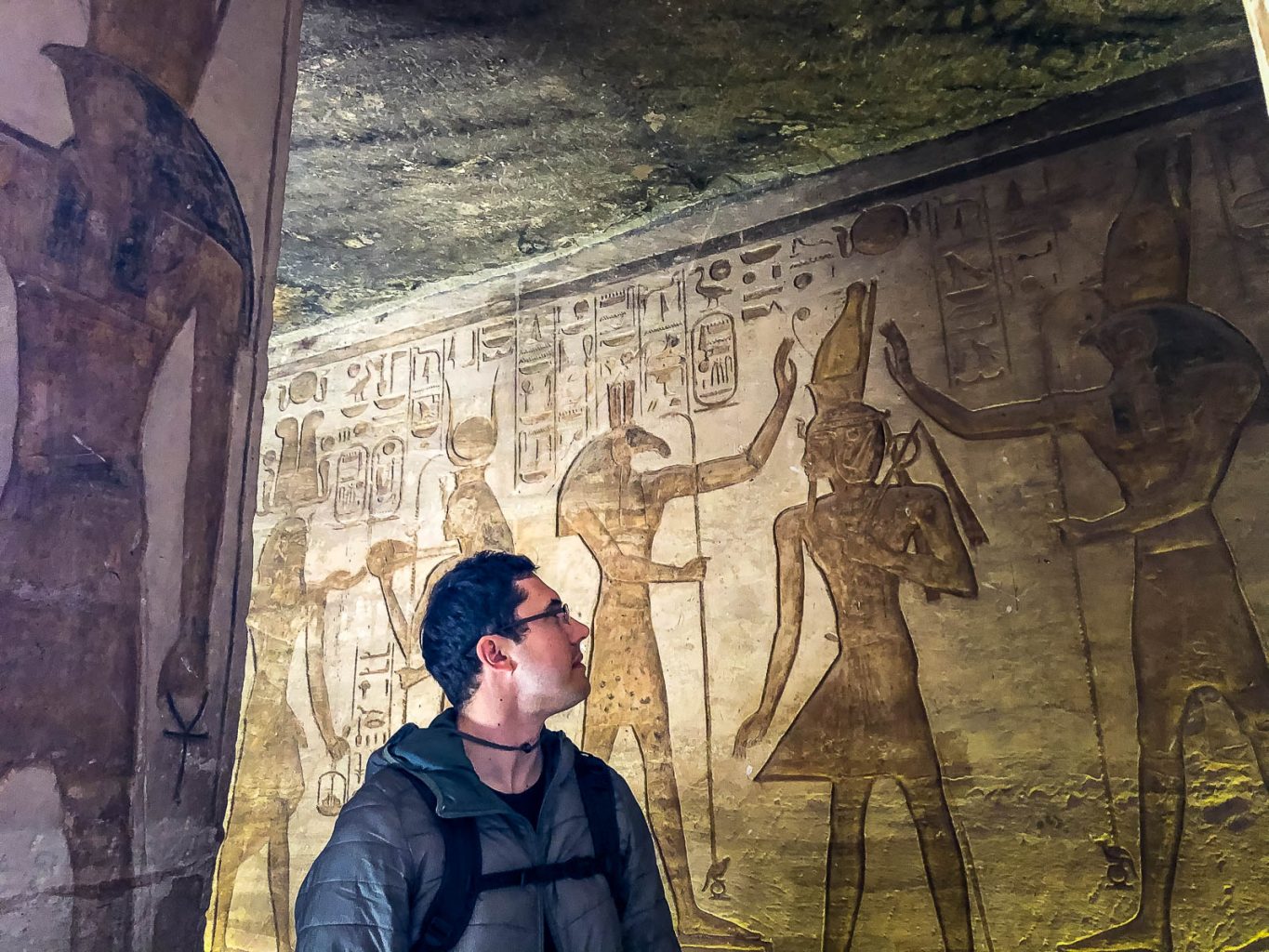
The inside of the temples were adorned with more statues and hieroglyphic covered walls. Once again, we were in awe of how all of these temples have stood the test of time.
Nile Cruise
The most popular way to explore the main Egyptian temples between Aswan and Luxor, we signed up for what we imagined to be a scenic multi-day cruise along the famous Nile river… along with thousands of other people. In hindsight, it was not the best decision for us for two main reasons:

First, all cruises had the exact same itinerary and the crowds were absolutely insane! The day we left, there were about 30 other ships also sailing. Every ship carried about 200 passengers, meaning there were ~6000 people swarming the temples, all at the exact same time! Total chaos. Let’s just say the lines were long…

Second, the itinerary was brutal and we felt rushed most of the time. Every day started before 5am and even so, we would still only have about an hour or two for each site. After our guide was done with the lengthy explanations, we got only about 5-10 minutes of free time.
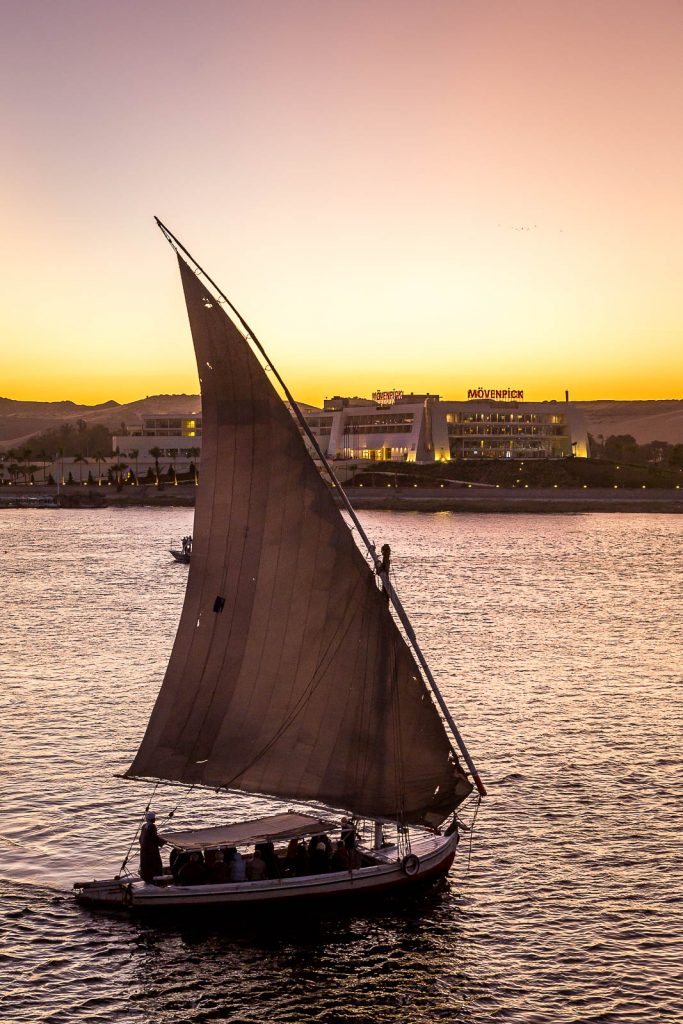
If we could have done this all over again, a much better option would be to visit the temples ourselves overland and strategically avoid the crowded times. For example, all cruises docked at Kom Ombo at about 5:30pm. So had we visited the temple in the morning or early afternoon, it would be practically empty – a much more enjoyable experience.

Lesson learned. Nonetheless, we tried to get the most out of our visits to the temples of Philae, Kom Ombo, Edfu, Luxor, Hatshepsut, Karnak and Valley of Kings. (Yes, there were A LOT of temples.)


After a while they all started to look very similar to our untrained eyes, though still pretty cool every time. Each had massive columns covered in hieroglyphics, impressive statues, and similar references to ancient Egyptian gods and kings that ruled the civilization throughout history. It felt like we were in a history book!

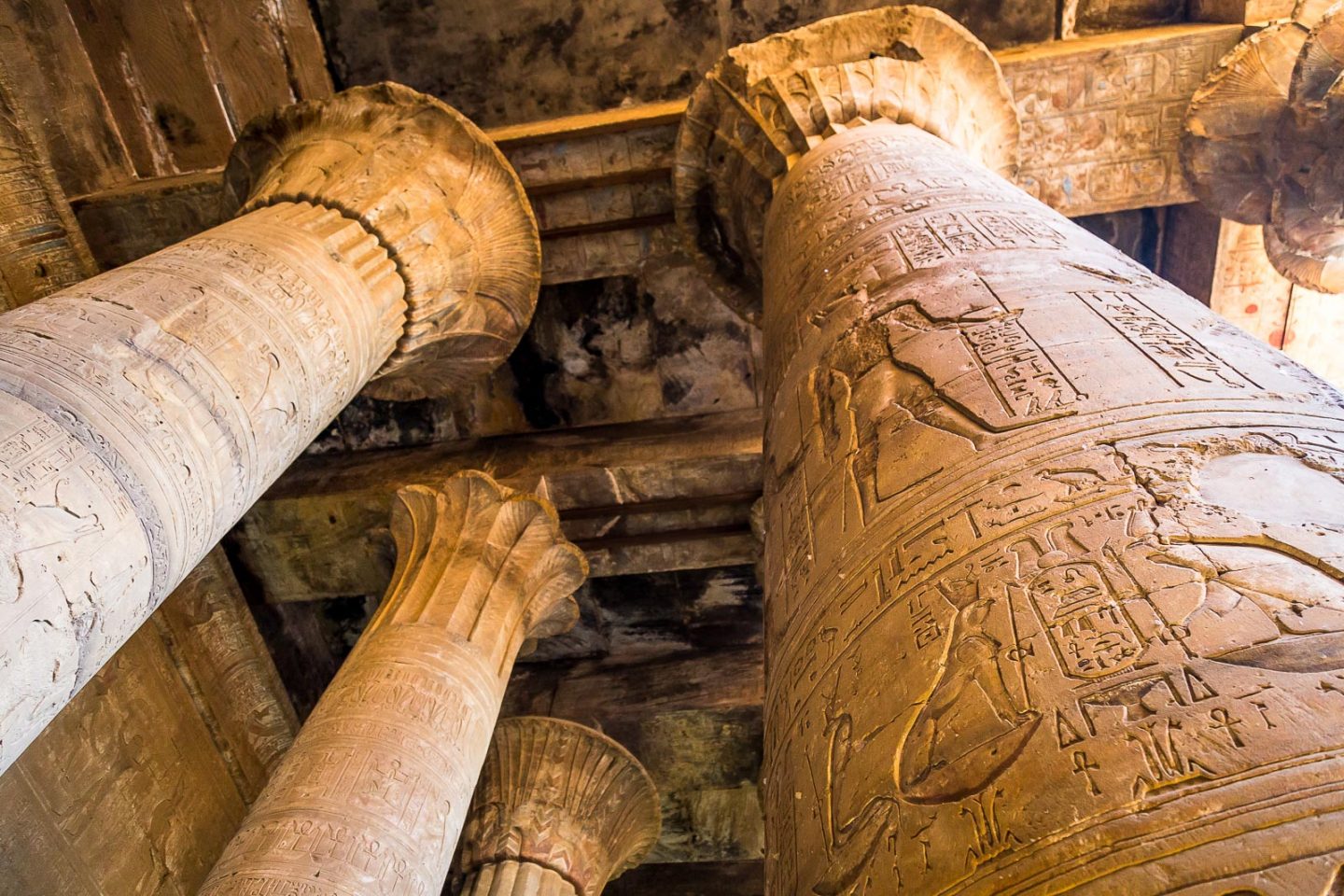
While Philae, Kom Ombo and Edfu were beautiful temples, the bigger and more impressive temples were in Luxor.
Luxor
We finished our Nile cruise in Luxor by visiting the temples of Luxor, Karnak, Hatshepsut and the tombs in Valley of the Kings.


If we had to pick only one temple out of all of these to visit, it would be Karnak. By far the biggest and most impressive of all of them, the entrance to Karnak had amazing obelisks, statues and columns.


The tombs in the Valley of the Kings were worth a stop as well. Walls were adorned with incredible colors, all of which seemed like they were painted yesterday. Like many of the sights in Egypt, it’s hard to believe that they had been there for thousands of years.

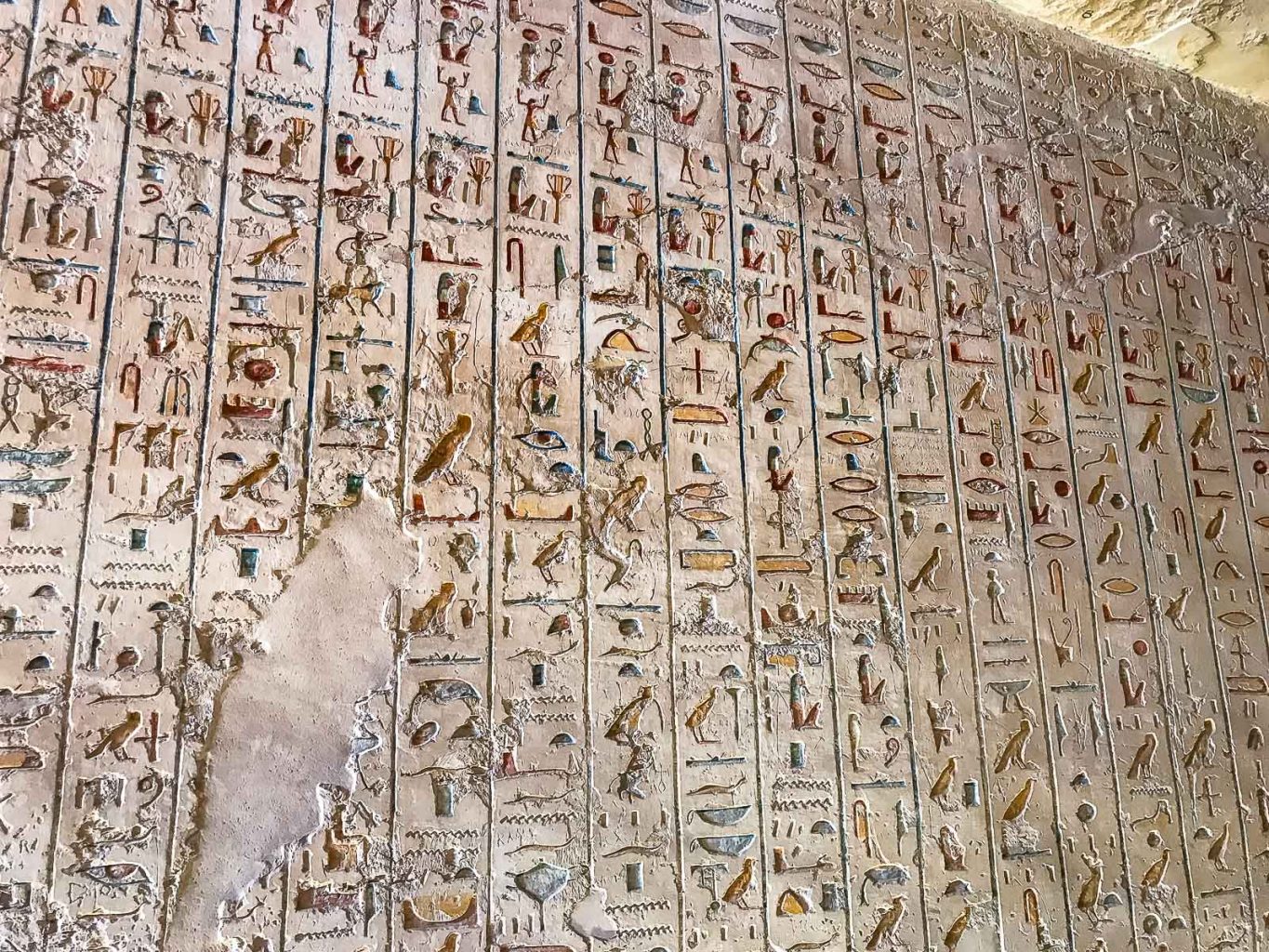
Luxor was also where we rode a hot air balloon for the very first time! It was an incredible experience to see the temples from above while literally rising with the sun.

At first we drifted close to the ground to see everything up close and then we slowly gained altitude, going as high as 2,500ft. Our pilot also overshot our landing site and we drifted for a while above the villages until a clearing came up and we landed next to somebody’s farm. Overall a thrilling and exciting experience.

To finish off Egypt, we headed to the beach resort town of Hurghada for some much needed relaxation. Our Middle East adventures are slowly coming to an end!
